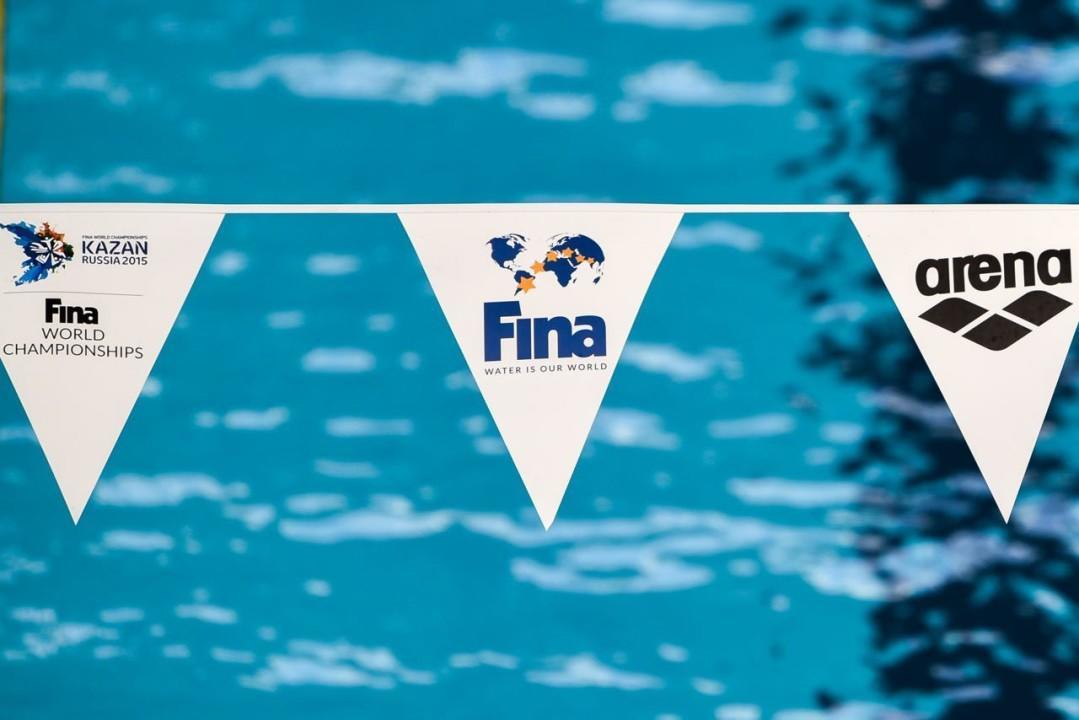FINA, the world’s governing body for the sport of swimming, has released an official statement in response to the The Times article alleging systemic doping within Russian swimming.
As we reported earlier today, according to The Times, Russia has undertaken systematic doping in swimming for years, spotlighted by Russian 100m breaststroke World Champion Yulia Efimova having tested positively for meldonium just recently, the 2nd positive test of a banned substance in her career.
In FINA’s statement, the organization says it has called on The Times to share any information that they may have which ‘might assist them in their primary objective of protecting clean athletes in swimming.’ FINA continues that ‘any new allegations of doping in our sport, which are substantiated by evidences and which have not already been addressed, well be investigated as a matter of utmost urgency.’
FINA’s statement also indicates that the outfit has no concrete evidence of systemic doping in Russian swimming, but that, due to the recent WADA investigation into systemic doping in Russia’s track and field athletes, FINA has taken a particularly robust approach to its anti-doping procedures in relation to Russia and Russian competitions.
This would seem to contradict The Times sources’ claims, which included a scene at the FINA World Cup in Russia last year when he saw ‘a desk next to the pool with 2 persons having medicine, pills, bottles, etc on it, right in front of everything.’ Said the source, “this is just one of many things that ‘tell us we should be concerned about Russian swimming.” (The Australian)
FINA cites the number of blood and urine samples collected during the 2015 FINA World Championships and reiterates that the entirety of its unannounced out-of-competition doping control program in Russia is now conducted by a third-party independent of FINA and RUSADA, the Swedish company IDTM.
You can read FINA’s full statement below:
| FINA statement |
| FINA is aware of the allegations made in today’s Times, and that further allegations may be made in the coming days. We have called on the Times to share with us any information they may have which might assist us in our primary objective of protecting clean athletes in swimming. Any new allegations of doping in our sport, which are substantiated by evidence and which have not already been addressed, will be investigated as a matter of utmost urgency, because we have absolutely zero tolerance for the use of performance-enhancing substances in swimming.
However, it should be noted that while FINA is not aware of any concrete evidence of systemic doping in Russian swimming, we have taken a particularly robust approach to our anti-doping procedures in relation to Russia and Russian competitions, in light of WADA’s recent investigation. During the 2015 FINA World Championships in Kazan, Russia, 645 samples were collected for analysis by the FINA Doping Control Review Board, led by Professor Andrew Pipe, as part of the in-competition testing programme. These comprised 457 urine and 188 blood tests. There were a further 418 blood screenings as part of the Athlete Biological Passport programme. These tests were analysed in the then-WADA-accredited laboratory in Moscow, under the supervision of independent observers from the WADA-accredited laboratories in Barcelona and London. Following the results of the WADA investigation, FINA issued a directive to ensure the continued integrity of the testing programme. Every single sample collected during the World Championships has been transferred and stored in the WADA-accredited laboratory in Barcelona. The entirety of FINA’s unannounced out-of-competition doping control programme in Russia is now conducted by a third-party independent of FINA and RUSADA, the Swedish company IDTM. In the 2014 season the majority of out-of-competition doping control tests were analysed by the WADA-accredited laboratory in Moscow, judged fully compliant with the WADA code at the time. However, following the announcement of the official investigation, FINA made the decision to move a significant majority of Russian athletes’ samples out of Russia for analysis. In 2015, the great majority of the samples collected in Russia were analysed in the WADA-accredited laboratories in Barcelona and Köln. The samples of Russian athletes living or training outside Europe were analysed in the WADA-accredited laboratories in Montreal (CAN) and Salt Lake City (USA). 100% of samples collected in Russia will be analysed in these overseas laboratories in 2016. FINA is currently conducting target-testing for the 10 best-performing athletes in each event, with at least five tests prior to the Olympic Games in Rio de Janeiro. FINA publishes the entirety of these statistics as well as the decisions of its FINA Doping Panel on the FINA website, where they remain until bans are spent. |

If Russia has actually engaged in “systematic” doping with swimmers in recent years, in my opinion the real story is how poorly their swimmers have done despite the advantage of doping! We haven’t seen anything like the dominance East Germany and China demonstrated with their female swimmers in the past, and other than Efimova or Morozov, both of whom are so talented that they COULD have been international medalists without any chemical assistance, Russia doesn’t have any athletes I would consider strong challengers for the podium in Rio anyway (at least in individual events).
When we know how close the relations are between FINA and Russia in the last few years….